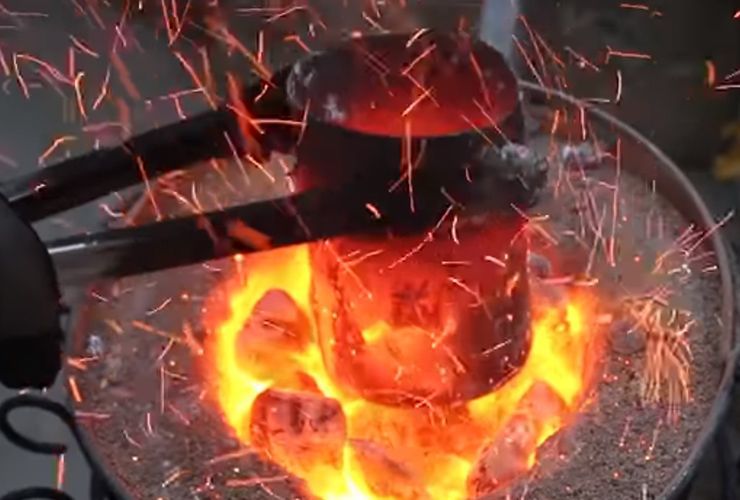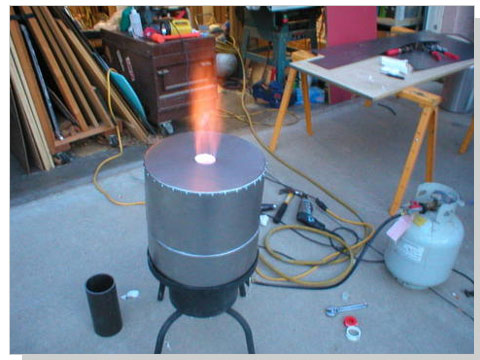Environmental impact in today’s Aluminum Foundry operations
Wiki Article
Discovering the Function of a Metal Foundry in Modern Manufacturing Processes
Metal foundries are pivotal in the landscape of modern-day manufacturing. They offer important elements across numerous sectors, adjusting to the needs of industries such as vehicle and aerospace. Advanced methods such as 3D printing and automated casting have changed their operations. Additionally, sustainability has actually ended up being a top priority, affecting their methods. As these foundries develop, the effects for manufacturing efficiency and technology are considerable, questioning about their future trajectory in an ever-changing economic situation.The Development of Metal Casting Techniques

With the surge of automation, foundries adopted methods like die casting and lost foam casting, enhancing the production procedure and decreasing waste. Each advancement in metal casting techniques has actually dealt with the demands of various markets, from vehicle to aerospace. As metal casting proceeds to development, the interaction in between method and innovation continues to be vital in meeting contemporary production difficulties, guaranteeing that foundries adjust and grow in an ever-changing landscape.
Combination of Advanced Technologies in Foundries
Traditional metal casting approaches have offered the sector well for centuries, the assimilation of innovative innovations in foundries is transforming the manufacturing landscape. Automation and robotics streamline manufacturing processes, enhancing efficiency and reducing the risk of human mistake. When impossible with conventional approaches, technologies such as 3D printing allow for quick prototyping and the development of complex geometries that were. Additionally, information analytics and the Internet of Points (IoT) enable real-time surveillance and predictive maintenance, eventually resulting in reduced downtime and increased performance. These improvements additionally assist in personalization, enabling makers to react swiftly to market needs. As sustainability becomes a top priority, the adoption of eco-friendly technologies, such as electrical melting furnaces and progressed sand recovery systems, even more shows the sector's commitment to advancement. Jointly, these technologies not only enhance operational efficiency however also setting foundries at the leading edge of modern-day manufacturing techniques.The Impact of Product Science on Foundry Workflow
Product scientific research plays a pivotal role in improving factory procedures, affecting both the option of products and the total casting procedure. Advancements in product scientific research supply a deeper understanding of the homes of alloys and steels, making it possible for foundries to choose the most suitable products for details applications. This expertise boosts the efficiency and longevity of actors items, which is vital for fulfilling sector standards.Innovations in material formulations and additives add to enhanced casting strategies, lowering issues and maximizing manufacturing efficiency. The development of innovative metal compounds and smart products enables foundries to create lighter, more powerful elements, which are progressively demanded in different industries such as automotive and aerospace.
In addition, material scientific research help in the recycling of metals, making processes a lot more effective and cost-efficient. By leveraging the newest findings in product science, foundries can adjust to developing market needs, ensuring their competition in a quickly transforming manufacturing landscape.
Sustainability Practices in Modern Metal Foundries
With the expanding emphasis on ecological responsibility, modern-day metal foundries are increasingly applying sustainability methods to decrease their environmental impact (Aluminum Casting). One essential strategy involves the recycling of scrap metal, which not only lowers waste but likewise conserves power and basic materials. Foundries are taking on sophisticated melting technologies that boost energy performance, as a result decreasing greenhouse gas discharges. In addition, making use of eco-friendly finishes and products has acquired grip, more reducing damaging exhausts throughout manufacturingWater conservation techniques, such as closed-loop cooling systems, are being executed to lessen freshwater use. Several foundries are also investing in sustainable energy sources, like solar and wind, to power their procedures, consequently decreasing reliance on fossil gas. Staff training programs focused on sustainability practices promote a culture of environmental awareness within the labor force. These campaigns jointly add to a much more lasting future for metal foundries while fulfilling the needs of eco-conscious consumers.
The Future of Foundries in a Transforming Financial Landscape
As the global economic situation develops, foundries face a myriad of challenges and possibilities that will shape their future (Aluminum Foundry). The boosting demand for light-weight materials and progressed alloys necessitates technology in manufacturing strategies and technical combination. Automation and wise manufacturing methods are coming to be essential for boosting efficiency and minimizing operational expenses. On top of that, the rise of sustainability problems obliges foundries to adopt greener processes and reusing efforts, aligning with worldwide environmental objectivesThe financial landscape is additionally shifting, with supply chain interruptions and rising and fall resources rates offering significant hurdles. Foundries need to adjust by expanding their supply Bonuses resources and buying materials scientific research. Furthermore, partnership with sectors such as renewable resource and electrical vehicles can foster growth. Inevitably, the future of foundries will depend upon their capacity to take advantage of technical advancements while staying responsive to market characteristics and environmental imperatives, ensuring their significance in modern production.
Regularly Asked Concerns
What Sorts of Metals Are Commonly Made Use Of in Foundries Today?
Frequently utilized metals in foundries today include light weight aluminum, iron, copper, zinc, and steel. These materials are preferred for their diverse properties, allowing a wide variety of applications in sectors such as automotive, aerospace, and building.Exactly how Does a Shop Guarantee Quality Assurance in Its Products?

What Security Actions Are Carried Out in a Metal Foundry?
Metal foundries apply precaution consisting of personal protective devices, ventilation systems to lower breathing of fumes, normal security training for staff members, emergency situation feedback methods, and rigorous tools maintenance to reduce risks and ensure a risk-free workplace.Just how Lengthy Does the Metal Casting Refine Usually Take?
The metal casting process usually takes several hours to days, depending upon factors such as the complexity read this of the mold, the type of metal used, and cooling times. Each task's requirements considerably influence the period.What Industries Mainly Rely Upon Metal Foundries for Production?
Automotive, equipment, building, and aerospace markets primarily depend on metal foundries for production. These industries use cast steels for parts, guaranteeing durability and efficiency important for their explanation corresponding applications in manufacturing and setting up processes.
Metal foundries are essential in the landscape of contemporary production. Aluminum Foundry. Conventional metal casting approaches have offered the industry well for centuries, the assimilation of sophisticated technologies in foundries is revolutionizing the manufacturing landscape. Breakthroughs in product science provide a much deeper understanding of the residential properties of alloys and metals, making it possible for foundries to choose the most suitable products for specific applications. With the growing focus on ecological obligation, modern-day metal foundries are progressively carrying out sustainability methods to reduce their ecological impact. Automotive, aerospace, equipment, and construction sectors primarily count on metal foundries for production
Report this wiki page